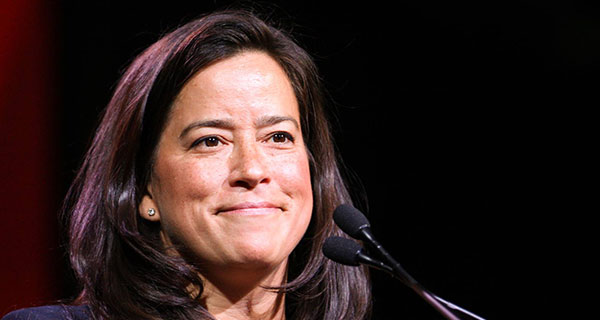 On April 2, Prime Minister Justin Trudeau tossed former cabinet ministers Jody Wilson-Raybould and Jane Philpott from the Liberal caucus.
On April 2, Prime Minister Justin Trudeau tossed former cabinet ministers Jody Wilson-Raybould and Jane Philpott from the Liberal caucus.
Their cabinet resignations on principle and subsequent removal from caucus two months into the SNC-Lavalin controversy appear to be unprecedented in Canadian politics.
Wilson-Raybould and Philpott haven’t determined what they’ll do next – or at least they’re not saying. The former seems intent on staying in federal politics, while the latter has simply said she will finish her term.
So I’m only going to explore Wilson-Raybould’s next possible political home.
The Conservatives would obviously welcome Wilson-Raybould into their caucus. She would instantly become a star candidate and a natural choice for a cabinet role if Andrew Scheer became the next prime minister.
But there’s one big problem: she’s fairly left of centre in her political leanings. Her strong interest in environmental issues and affordable housing is perfectly fine and the Tories are obviously not opposed to these issues, but their solutions would be very different. Aside from a shared interest in democratic reform, it’s hard to exactly know how Wilson-Raybould would fit in.
And, as she recently told Vancouver Province columnist Mike Smyth, “I don’t identify with the Conservatives’ ideology.” Suffice to say, she won’t end up on the Tory benches.
What about the NDP?
They appear to have shared interests in health care, education, the environment, Indigenous issues, housing and so forth. NDP Leader Jagmeet Singh would certainly welcome her into the party and give her a prominent critic’s role right off the bat.
But I’m not convinced Wilson-Raybould’s left-leaning views go as far as the NDP’s. On the surface, she seems pretty sensible (for a current or ex-Liberal) when it comes to foreign policy, building pipelines and ensuring the private sector has a role to play in Canada. These views simply wouldn’t mesh with the NDP.
So she could join the NDP but it’s not the best fit.
Wilson-Raybould could run in her riding of Vancouver-Granville as an independent or an independent Liberal. It’s certainly doable. Various independents have sat in the House of Commons – and a few have been elected, including recent examples like André Arthur, Chuck Cadman and John Nunziata.
According to an April 4-5 survey of 241 potential Vancouver-Granville voters conducted by Justason Market Intelligence, as an independent she would earn 33 per cent of the vote, ahead of the Liberals (24 per cent), NDP (21 per cent) and Tories (15 per cent).
But is there any point to running as an independent?
Her political influence would be minimal, as is the case for most independents.
And yes, she could sit as an independent MP, wait for Trudeau to either lose an election or resign as PM and/or party leader, and head back to the Liberals. But if they don’t want her for any reason, she’s stuck between a rock and a hard place.
It’s an easy role to play but her political future could end up being very cloudy.
And that brings us to Elizabeth May and the Green Party. This seems to be the best fit of all given Wilson-Raybould’s political leanings, especially on environmental issues. The federal party has a solid base of support in her home province, and there are provincial Green politicians in B.C., New Brunswick, Ontario and Prince Edward Island.
Wilson-Raybould would immediately become the party’s second-in-command in the House of Commons and could be exactly what the Greens have long needed to help elect more MPs.
Plus, she would have a real chance at career advancement when May eventually steps down and a new federal leader is required. What better choice would there be than a former Crown prosecutor, Justice minister and attorney general who has been repeatedly praised by Canadians for being honest and ethical when compared to Trudeau and his Liberal government?
All things considered, Wilson-Raybould’s next political home could be a Green one.
Troy Media columnist and political commentator Michael Taube was a speechwriter for former Prime Minister Stephen Harper.
The views, opinions and positions expressed by columnists and contributors are the author’s alone. They do not inherently or expressly reflect the views, opinions and/or positions of our publication.

